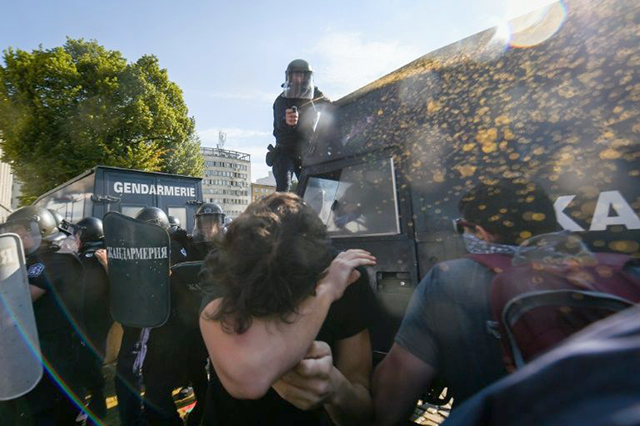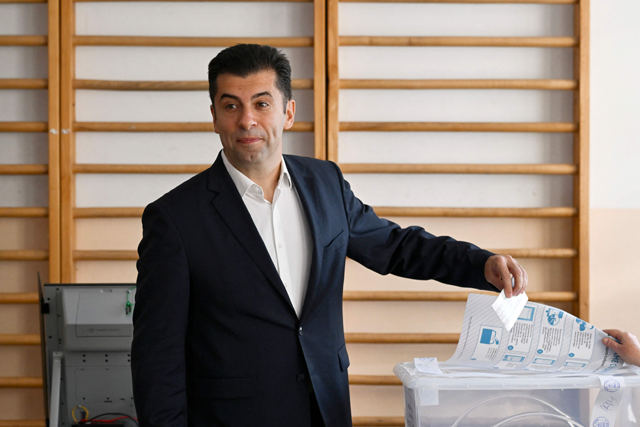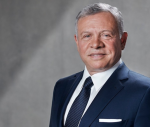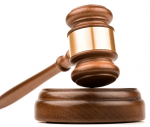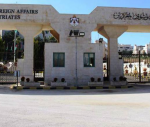You are here
Anti-government protesters, police clash in Bulgaria
By AFP - Sep 02,2020 - Last updated at Sep 02,2020
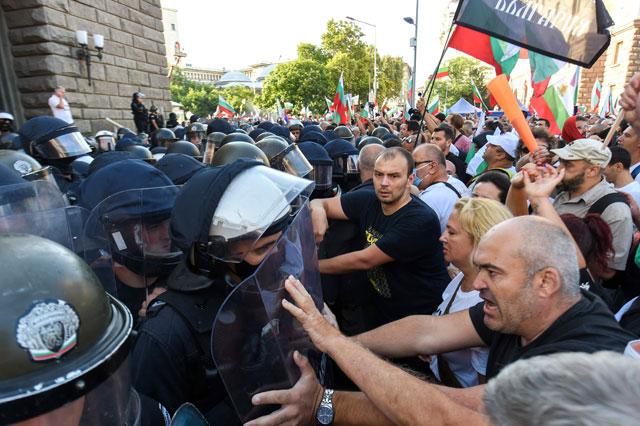
Protesters clash with police officers during an anti-government demo in Sofia on Wednesday (AFP photo)
SOFIA — Bulgarian police and protesters clashed on Wednesday as parliament met to begin discussion on a new constitution aimed at appeasing weeks of anti-government rallies.
Demonstrators have been blocking roads and staging daily rallies in the capital Sofia and other cities for almost two months.
They are pressing for the resignation of Prime Minister Boyko Borisov and chief prosecutor Ivan Geshev over their perceived links with behind-the-scenes oligarchs.
Borisov has already sacked several key ministers and recently proposed adopting a new constitution, but the protesters have dismissed these moves.
Thousands of demonstrators took to the streets of central Sofia Wednesday, shouting "Resign" and "Mafia", and throwing rocks, eggs and tomatoes.
Police used pepper spray and tear gas and said they arrested eight protesters, while 20 officers were injured in clashes outside parliament.
Sixteen people, including protesters, were admitted to hospital, according to emergency services.
The clashes came as parliament began its autumn session, which is expected to discuss the government's proposal for a new constitution.
In a statement inside parliament, President Rumen Radev, who has voiced support for the protesters' demands, called on lawmakers to "emerge from the crisis with dignity" by paving the way for early elections.
"Confidence is definitely lost," he said.
Borisov, in power almost without interruption for more than a decade, has so far refused to resign before his third term expires in March next year.
Analysts have dismissed the conservative premier's proposal for a new constitution as an attempt to win time and cling to office.
Activists too have slammed it for failing to improve the accountability of the chief prosecutor — an issue long highlighted by Bulgarian and international observers as well as the European Court of Human Rights — while trying to limit the rights of the president.
Debates in parliament on whether to adopt a new constitution can take months.
Thirteen years after joining the EU, Bulgaria remains its poorest and most graft-ridden member, according to Transparency International's corruption perception index.
Related Articles
SOFIA — Bulgaria's ruling party insisted on Thursday Prime Minister Boyko Borisov's government would not resign after two months of protests
SKOPJE, Republic of North Macedonia — Several thousand people protested on Saturday in North Macedonia’s capital Skopje against a proposal a
SOFIA — Bulgarians voted Sunday in their seventh election in less than four years, with little hope of an end to political turmoil that has


